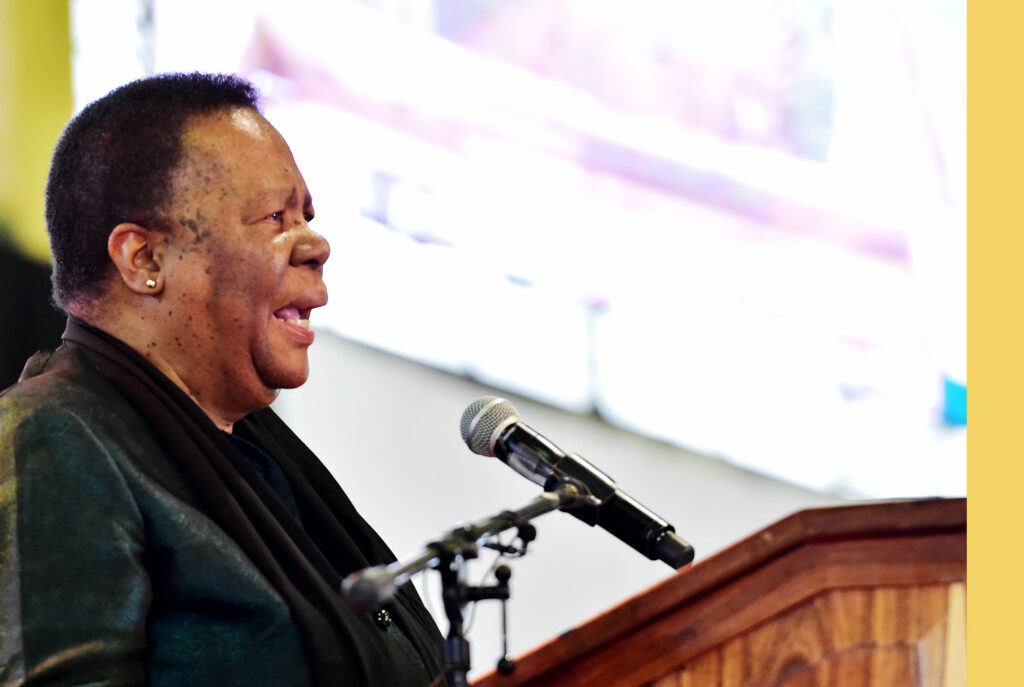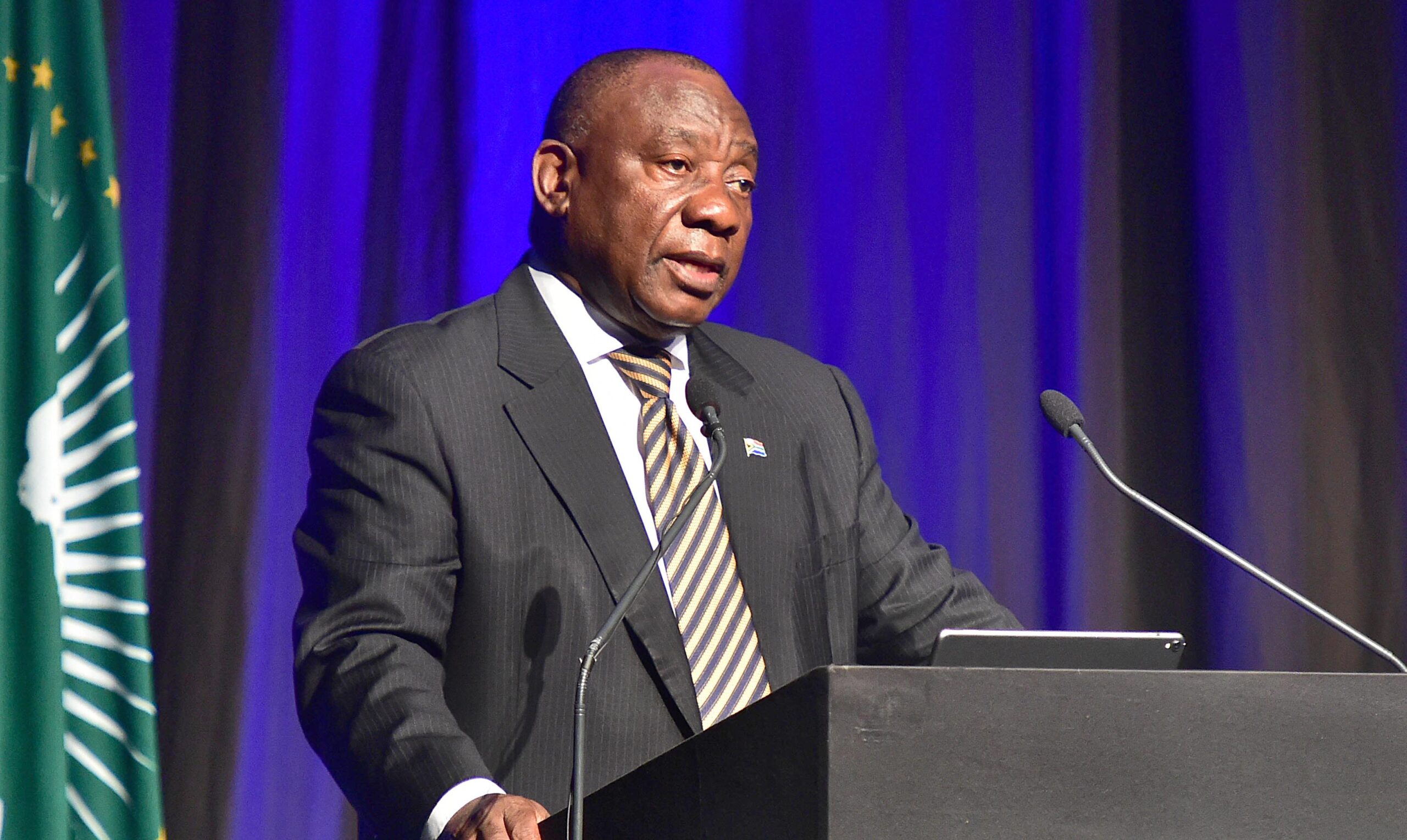Is South Africa today a significant player or an inconsequential noisemaker in international affairs? The messy state of the world today renders the question even more unavoidable for our country. Prince Mashele investigates…
Anyone desiring to gauge the magnitude of South Africa’s international relations problem should take a few minutes to ponder the question: What has been President Cyril Ramaphosa’s foreign policy since he took over the Union Buildings in 2018?
The hunch of a presidential spokesperson, when confronted with such a question, would be to remind the public about the notable international events (such as BRICS summits, the coronation of the British King, a visit to Russia, etc.) that the president has either hosted or attended, to prove that Mr Ramaphosa has been active in the international arena.
When pressed to present a more systematic and coherent outline, Ramaphosa’s spokesman would probably mumble something along the same moralistic lines of “respect for human rights” that were in vogue when Nelson Mandela was still president.
It is not the spokesperson’s problem, though. It is the president’s own emptiness. Look at the foreign minister of Ramaphosa’s choice, Naledi Pandor. Pandor is a relic of a bygone era who personifies a foreign policy that is tired, senile, and confused.

That our foreign minister is very old we all know, and that slumber often gets the better of her we understand.
When Pandor is asleep, a younger and louder ministerial mouth, Khumbudzo Ntshavheni, takes over the verbal duties. After making a foreign policy statement, Ntshavheni leaves the world shocked, wondering if South Africa has a special factory that produces the proudest kind of political madness. Ntshavheni best exemplifies the destructive combustion of youthful energy under the directorship of a hollow head.
Again, it is not the ministers’ problem. The personalities involved reflect the president’s own mind. Amazingly, what Niccolò Machiavelli wrote in 1513 remains true in 2023: “One can assess a prince’s intelligence by looking at the men [or women] with whom he surrounds himself.” And, sadly, Machiavelli was right: “A prince who is not himself wise cannot be well advised.”
Coming after Jacob Zuma, and riding on the specious slogan of a new dawn, most South Africans expected Ramaphosa to strut the global stage with the gravitas of a serious statesman and the wisdom of a leader with the illustrious biography of he who straddles the worlds of trade-unionism, political negotiation, and moneymaking.
Alas, it was not to be. The world can now tell that there is nothing beyond the practiced English accent that initially made audiences sit up whenever Ramaphosa appeared at international conferences.
Ramaphosa’s foreign policy problem is an intellectual one. He has no capacity to read and make sense of the place of South Africa in the changing world. Nor does he know how to position his country strategically.
The starting point would be to appreciate the factors which have lent significance to South Africa historically, and to reassess the importance of the factors in the world of today.
Even though nature has withheld certain advantages from us (such as a good rainfall or navigable rivers), geography and history have compensated by giving us a relatively long coastline—from Namibia in the west to Mozambique in the east.
Not only have South Africa’s geographic position and strategic coastline rendered our country significant in the naval and trade calculations of great powers, our natural resource endowments continue to feature in the ambitions of superpowers as they weigh out future options to dominate the world.
It is the hand of nature that has pulled history in our direction. While the bigger part of our history is indeed ugly, the presence of a sizable number of white people in South Africa has added a good measure of strategic significance to our country.
While it is true that white people have facilitated the draining of natural resource from South Africa to mainly Western countries, they have at the same time connected South Africa to the wider currents of European and American scientific and technological developments that, over a long period of time, explain how South Africa’s economy became more sophisticated than the rest of Africa.
That white people, through colonialism and apartheid, have committed crimes against humanity in South Africa is a well-known fact, but only quixotic naivety would downplay the role of white people and their scientific knowledge and skills in modernising our country.
One is aware that parochial Africanism feels a sense of righteous indignation each time the positive role of white people in South Africa is acknowledged. The farsightedness of east Asians in seeking knowledge from the West (beginning with Meiji Japan in the second half of the 19th century and China under Den Xiaoping a century later) perhaps explain why Africa remains stagnant while Asia gallops ahead.
Any black leader who would fashion a foreign policy without considering the significance of the presence of white people in South Africa would be doing so at the peril of his own country.
Even though the official documents of Western countries in the 21st century would not be as blunt as they used to be during colonialism and apartheid, the presence of white people in South Africa is a significant factor in the country’s engagement with the West. A naïve black person would call this racism, but the students of international relations wouldn’t struggle to grasp the realist core of our situation.
Highlighting South Africa’s intractable link with the West must not be misconstrued as an appeal for our country to act as if the West of the period up to the end of the 20th century is the same as that of today.
At its peak, before the Second World War, the last European power to dominate the world, the British Empire, boasted colonial possessions with over 500 million people, when the world had about 2.3 billion people. Today, Britain, as it struggles to redefine itself in a post-Brexit Europe, is a shadow of its former self. That South Africa is still a member of the British Commonwealth reveals a great deal about the anachronism of our foreign policy.
After the Second World War, the USA inherited the imperial baton from Britain, owing to the former’s unrivalled progress in economic, military, and cultural power in the 20th century. American consumerism triumphed over Soviet scarcity and misery.
As the Americans were celebrating their triumph, and as their exuberant intellectuals were busy trumpeting a fictitious end of history, the new leader of the Western world committed some serious strategic mistakes.
The first mistake made by the USA was to prolong its burial of the Soviet Union. It prolonged the funeral until the Soviet corpse became restless and decided to jump out of the grave, reincarnating itself in Vladimir Putin, who would haunt the soul of the USA for a long time.
Globally, the USA oversold its liberal democratic propaganda, while using the post-World-War-II financial (IMF and World Bank) and trade (WTO) architecture to sap economic vitality from countries of the South. It sponsored the kind of globalisation that enriched the West and pauperised the rest. This was accompanied by direct military interventions in countries where the USA felt the need to knock intransigence out of the heads of foreign leaders with an anti-West backbone. Thus, resentment against the West intensified in the developing world. In a nutshell, this is what constituted the USA’s second mistake.
The third, and perhaps the biggest, mistake made by the USA in the post-Cold War era was to be blind-spotted by China’s strategic calculations, especially in respect of economic development, which would overtime buttress military power.
Since Deng Xiaoping initiated his country’s economic turn-around (from communism to a mixed capitalist system) at the end of the 1970s, China’s economy has grown to the extent that the World Bank could not avoid confirming that China’s growth is “the fastest sustained expansion by a major economy in history”.
By 2009, China’s strategy had reached such vertiginous heights of success that the world-acclaimed economic historian Niall Ferguson publicised his neologism, Chimerica, to describe the irreversible economic integration between the USA and China.
For China, integration with the USA economy was not the end game. The point was to catch up and overtake. That the USA economy is still number one ($27 trillion) and that China’s is number two ($18 trillion), conceals the real fight for the future.
Even as pre-eminent a USA thinker as Henry A. Kissinger agrees (see his co-authored book, ‘The Age of AI And Our Human Future’) that the future belongs to artificial intelligence (AI). By 2030, China is projected to be the global leader in AI.
China is already a world leader in the production of electric vehicles (EVs), which is another niche of future dominance. Unlike Russia, which has focused on fighting wars instead of building, China has grasped the secret of beating the USA at its own game: investing in areas that will conquer the future.
Such is the state of the fight for the future. The rivalry involves mainly two actors—the USA and China. India has serious ambitions, but it is too cacophonous a society to mount a coherent strategy on a sustainable basis. Europe is out of the game, but it continues to benefit from the economic gains it accumulated over a long period of colonial dominance. Russia is a jingoistic irritant to contain, not a strategic rival to worry about.
To predict the future is a folly even soothsayers make great efforts to avoid. But a discerning reader of trends cannot fail to see that the USA is drifting in the direction of disaster. China’s one-party political system seems far steadier than the USA’s chaotic and self-devouring democratic culture. Indeed, the game between the two important players is still on.
In such games of high strategy, Africa, and South Africa in particular, is not even worth mentioning. Just as former colonial masters used African countries as sources of raw minerals, China will also yank what it wants from Africa. The only difference is that, unlike Europe and the USA, China doesn’t use guns to knock intransigence out of foreign leaders’ heads.
This brings us back to the question that is more important for a small and inconsequential country like South Africa: What can we do in such a high-stakes world?
The laziest among us will be quick to shout: “Join and stay with BRICS!” That may be easy, but it is not how small countries that have carved out space for themselves in the world have done it. In Europe, look at countries like Switzerland or Denmark. In Asia, look at Singapore or South Korea. In Africa, look at what Paul Kagame is doing in Rwanda.
What is common about those small countries is an obsession with their own internal development, guided by a visionary and competent political leadership that focuses on how to extract economic gains from a world that is always politically turbulent.
South Africa’s biggest problem is that its political leadership, led by President Cyril Ramaphosa, is grossly incompetent and corrupt. The only thing they are capable of is to embarrass us by joining useless African missions to Russia, or trade insults with Israeli Jingoists.
Given our natural endowments and strategic geographic position, South Africa would easily become Africa’s Singapore or Switzerland—only if we had a visionary and competent leadership.
Prince Mashele is a political scientist and author.

